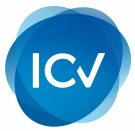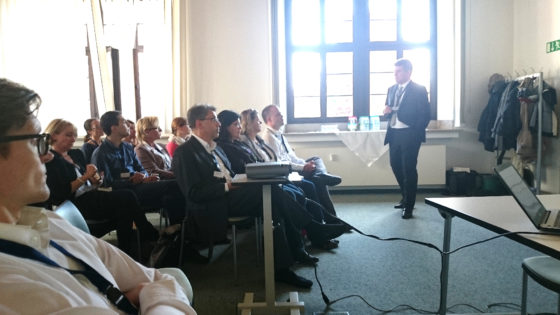Alljährlich verleiht der ICV Internationaler Controller Verein auf Europas führender Controlling-Tagung, dem Münchner “Congress der Controller“, den renommierten ICV Controlling Excellence Award. Am heutigen 27. April sollte am Eröffnungstag des 45. Congress der Controller, der Preis einem dieser drei nominierten Kandidaten überreicht werden: A1 Telekom Austria, BASF oder Pixum.
Der Congress ist aus bekannten Gründen auf den 26./27. April 2021 verschoben worden. Dort werden auch die Nominierten dieses Jahres auf die Bühne kommen. Wie der Gewinner 2020 noch in diesem Jahr würdig gekürt wird, ist angesichts sich ständig verändernden Lage noch nicht entschieden, wird aber rechtzeitig bekannt gegeben. Heute stellen wir alle 3 Nominierten vor.
Die Jury-Entscheidung
„Vorbildliche Controllerarbeit ist eine solche, die anderen Controllern Anstöße für eine konkrete Verbesserung ihres Controllings geben kann“, erklärt Prof. Dr. Dr. h.c. Jürgen Weber, WHU – Otto Beisheim School of Management, Vallendar, Vors. des ICV-Kuratoriums und Juryvorsitzender. „Zumeist sind die Lösungen innovativ, zeigen neue Wege auf. Wichtig ist uns dabei die praktische Umsetzbarkeit und dass das Controlling dadurch effizienter oder effektiver geworden ist, und das nicht nur nach Meinung der Controller, sondern auch der Manager.“
Zur Jury gehören Jens Bieniek, CFO BLG Logistics Group AG & Co. KG, Bremen, Mitglied im ICV-Kuratorium, Roland Iff, Geberit Schweiz, Leitung Konzernbereich Finanzen (CFO), Prof. Dr. Andreas Seufert, HS für Wirtschaft und Gesellschaft Ludwigshafen, Prof. für Informationsmanagement, Leiter des ICV-Fachkreises BI/Big Data & Controlling, sowie Prof. Dr. Ute Vanini, FH Kiel, Hochschule für Angewandte Wissenschaften, Professorin für Controlling und Risikomanagement. Am 31. Januar endetet die Bewerbungsfrist. „Generell ist auffällig, dass dieses Mal alle Nominierten Themen im Kontext von Digitalisierung eingereicht haben“, so der Jury-Vorsitzende.
Drei Kandidaten nominiert
Bei dem Projekt von A1 Telekom Austria „Working Capital Management – Agile Methoden im Finanzbereich“ würdigt die Jury das agile Vorgehen, etwa mit dem Einsatz von Scrum und Design Thinking. Das sei ein Muster für weitere Projekte im Finanzbereich. Denn im Unternehmen seien die Zusammenarbeit zwischen den Abteilungen verbessert und sehr gute Resultate für das Business erzielt worden.
Für die Nominierung der BASF mit dem Projekt „PACE (Predictive Analytics Estimate) – die IT-basierte Finanzprognose zur Unterstützung der Unternehmensplanung und -steuerung“ hat die „anspruchsvolle, aber doch praxisnahe und konsequente Umsetzung eines Predictive-Analytics-Ansatzes“ gesprochen. Die Integration interner und externer Datenquellen, die Verbesserung der Effizienz und der Qualität eines typischen Controlling-Instruments, die „sehr gute und pragmatische Integration in die Controlling Arbeit“ und nicht zuletzt der Erfolgsnachweis durch die praktische Umsetzung sprechen laut Jury für diesen Kandidaten.
Die „konsequente Umstellung der Reporting IT“ in Kombination mit „einer innovativen und zukunftsgerichteten Reorganisation“ macht Diginet GmbH & Co. KG (Pixum) zum Preisträgerkandidaten 2020. Das Projekt „Vision Team 42 – zukunftsfähiges Controlling und Modern Data Solutions aus einer Hand“ habe zu einer Steigerung der Effizienz im Reporting geführt und ermögliche „neue Analysen und damit Einsichten“. Zudem sei die Grundlage für ein Self-Controlling im Unternehmen gelegt worden.
A1 Telekom Austria: „Working Capital Management – Agile Methoden im Finanzbereich“
A1 Österreich ist der führende Kommunikationsanbieter in Österreich und Teil der A1 Telekom Austria Gruppe. A1 gestaltet die digitale Lebenswelt von fünf Millionen Mobilfunk- und zwei Millionen Festnetzkunden in Österreich im Consumer und im Enterprise-Segment. Um die Finanzierung des Wachstums im investitionsintensiven Kommunikationsmarkt sicherzustellen, wurde vom Leadership Team der A1 ein starker Fokus auf Working Capital und Lageroptimierung innerhalb der Cashflow-Verbesserung gelegt. Ziel war es, Optimierungsmöglichkeiten im Unternehmen in den Bereichen Forderungen, Verbindlichkeiten, Förderungen und Lagerhaltung aufzuzeigen und mit den Linienverantwortlichen entsprechende Maßnahmen zu erarbeiten. Dabei sollte funktionales Silodenken überwunden und übergreifend zusammengearbeitet werden. Von der CFO wurde ein klares, monetäres Verbesserungsziel mit Stichtag 31. Dezember 2019 gesetzt. Controller und Controllerinnen als „Steuerer“ dieser Maßnahmen sollten die Fokussierung der Teams auf das Ergebnis sicherstellen.
In den marktnahen Bereichen der A1 werden bereits erfolgreich agile Methoden eingesetzt. In Squads werden Produkte entwickelt, Onlineauftritte laufend angepasst und Services verbessert. Im Projekt erhielt das Controlling den Auftrag, ein Setup zu finden, um den Einsatz agiler Methoden auch im Finanzbereich zu evaluieren. Ein Team aus verschiedenen Funktionen des Unternehmens wurde zusammengestellt und erhielt eine klare Zeit- und Ergebnisvorgabe. Mit Scrum und Design Thinking wurden Maßnahmen gemeinsam mit Linienverantwortlichen erarbeitet und ein Steuerungssystem für die Controlling-Linie entwickelt. Das gesetzte Ziel konnte deutlich übertroffen und nachhaltige Strukturen zur Cash-Flow-Optimierung installiert werden. In nur vier Monaten erreichte das Team die Fokussierung und Orchestrierung der Mitarbeiter über funktionale Grenzen hinweg. Der erfolgreiche Einsatz von agilen Methoden konnte dem A1 Leadership Team vom Controlling rückgemeldet werden.
BASF: PACE (Predictive Analytics Estimate) – die IT-basierte Finanzprognose zur Unterstützung der Unternehmensplanung und -steuerung
Chemie für eine nachhaltige Zukunft, dafür steht BASF. Das Unternehmen verbindet wirtschaftlichen Erfolg mit dem Schutz der Umwelt und gesellschaftliche Verantwortung. Rund 122.000 Mitarbeiter arbeiten in der BASF-Gruppe daran, zum Erfolg der Kunden aus nahezu allen Branchen und in fast allen Ländern der Welt beizutragen.
Wie lässt sich in einer sich stetig verändernden Welt eine fundierte Prognose zur Unternehmenssteuerung und -planung erstellen? BASFs Corporate Controlling hat 2016 eine Initiative gestartet, um die Möglichkeiten der digitalen Transformation auch für die Finanzprognosen des Unternehmens zu nutzen. Erhöhte Datenverfügbarkeit, größere Rechenkapazität und statistische Modelle ermöglichen so eine automatisierte, IT-basierte Prognose für die wichtigsten Leistungsindikatoren der BASF-Gruppe. Dabei stützt sich der Prognose-Algorithmus nicht nur auf die historischen Finanzergebnisse der BASF-Unternehmensbereiche, sondern berücksichtigt auch bedeutende industriespezifische und makroökonomische Indikatoren.
Die Entwicklung einer solchen IT-Lösung stellt aus heutiger Sicht keine unüberwindbare Herausforderung dar. Es ist jedoch von herausragender Bedeutung, den adäquaten organisatorischen Rahmen zur Nutzung digitaler Lösungen zu schaffen und bisherige Herangehensweisen neu zu denken. In diesem Zusammenhang hat BASF 2019 einen Prozess etabliert, der die Vorteile neutraler, automatisierter Prognosen und vorhandenem Expertenwissen zu nutzen weiß. Die monatliche IT-basierte Prognose wird durch Experten in den Unternehmensbereichen nur um außerordentliche, der Maschine nicht zugängliche Ereignisse ergänzt und dient zum unterjährigen Ausblick. Für das Gesamtjahr wird diese Prognose mit den eigenen Prognosen der Bereiche abgeglichen, um Maßnahmen transparent zu diskutieren und gezielt umzusetzen. Die Kombination aus digitaler Lösung und Fachwissen erlaubt eine zielgerichtete Unternehmenssteuerung.
Pixum: „Vision Team42 – zukunftsfähiges Controlling und Modern Data Solutions aus einer Hand“
Pixum ist einer der führenden Online-Fotoservices in Deutschland und Europa. Neben dem besten Kundenservice und einem einfachen, inspirierenden Einkaufserlebnis begeistert Pixum seine Kunden mit hochwertigen Markenprodukten wie dem Pixum Fotobuch oder dem Pixum Fotokalender. Sowohl die Pixum-Produktqualität als auch der Pixum-Kundenservice wurden bereits vielfach ausgezeichnet, unter anderem vom TÜV Rheinland sowie von der Stiftung Warentest. Das im Jahr 2000 gegründete Unternehmen beschäftigt am Firmensitz in Köln derzeit über 150 Mitarbeiter.
Mit zunehmender Bedeutung der datenbasierten Entscheidungsfindung im Unternehmen bedarf es einer neuen Ausrichtung des klassischen Controllings. Die Verschmelzung mit den Bereichen Data Warehouse, Business Intelligence und Data Science in einer Abteilung bietet die Grundlage dafür, den kompletten Datenfluss von den Quellsystemen bis hin zu Analysen und Reportings selbstständig zu steuern und weiterzuentwickeln. Das hierfür gebildete Team 42 vereint alle wichtigen Fachkompetenzen in einer Abteilung und ermöglicht neben einer effizienten und nachhaltigen Budgetsteuerung tiefgehende Einblicke in Konsumenten- und Marktverhalten. In den vergangenen zwei Jahren hat Pixum mit dem Team 42 das klassische Controlling komplett neu aufgestellt und fit für die Anforderungen der Jahre 2020+ gemacht. Durch eine vollständige Erneuerung der Datenbasis wurde das Monitoring des Geschäfts in Echtzeit ermöglicht. Weiterhin wurden erste Data-Science-Lösungen wie Forecasts, Kunden-Scorings oder ein Fraud-Detection-Modell in die Systeme integriert. Die zentrale Bereitstellung von Unternehmensdaten sowie tägliche Meetings, an denen teilzunehmen jedem Mitarbeiter freigestellt ist, sowie eine konsequente Umsetzung des Self-Service-Ansatzes trugen wesentlich dazu bei, das Vertrauen in eine datenbasierte Entscheidungskultur auszubauen. So wurde aus dem Selbstverständnis des Controllings die Unternehmenskultur von Pixum geprägt.
Drei hochkarätige Kandidaten für den ICV Controlling Excellence Award 2020! Bleiben Sie gespannt, wer das Rennen gemacht hat!
Every year, the ICV International Association of Controllers presents the renowned ICV Controlling Excellence Award at the Europe’s leading controlling conference, the “Congress of Controllers” in Munich. Today, April 27, on the opening day of the 45th Congress of Controllers, the award should be presented to one of these three nominated candidates: A1 Telekom Austria, BASF or Pixum.
For known reasons, the Congress is postponed to April 26/27, 2020. The nominees 2021 will come on stage there. In view of the constantly changing situation, it has not yet been decided how the 2020 winner will be worthily selected this year, but we will announce it in good time. Today we introduce all 3 nominees.
The Jury decision
“Exemplary controller’s work can give other controllers impulses for a concrete improvement in their Controlling”, explains Prof. Dr. Dr. h.c. Jürgen Weber, WHU – Otto Beisheim School of Management, Vallendar, Chairman of the ICV Board of Trustees and Chairman of the Jury. “Most solutions are innovative and show new ways. Important to us is the practical feasibility and making controlling more efficient or effective, and not just in the opinion of the controller, but also the manager.”
To the Jury belong Jens Bieniek, CFO BLG Logistics Group AG & Co. KG, Bremen, Member of the ICV Board of Trustees, Roland Iff, Geberit Switzerland, Head of the Finance Division (CFO), Prof. Dr. Andreas Seufert, HS for Business and Society Ludwigshafen, Prof. for Information Management, Head of the ICV expert work group BI / Big Data & Controlling, and Prof. Dr. Ute Vanini, Kiel University of Applied Sciences, University of Applied Sciences, Professor of Controlling and Risk Management. The application deadline was January 31. “In general, it is striking that this time all nominees submitted topics in the context of digitization,” said the Chairman of the Jury.
Three candidates nominated
In the A1 Telekom Austria project “Working Capital Management – Agile Methods in Finance”, the Jury honored the agile approach, for example the use of Scrum and Design Thinking. This is a model solution for other projects in the financial sector. Because within the company, the cooperation between the departments had improved and very good results had been achieved for the business.
BASF was nominated for the project “PACE (Predictive Analytics Estimate) – the IT-based financial forecast to support corporate planning and management”: demanding, but still practical and consistent implementation of a predictive analytics approach”. The integration of internal and external data sources, improvement of the efficiency and quality of a typical controlling instrument, the “very good and pragmatic integration into the controlling work” and last but not least the proof of success through the practical implementation convinced the Jury to BASF.
The “consistent change of reporting IT” in combination with “an innovative and future-oriented reorganization” made Diginet GmbH & Co. KG (Pixum) a nominee. The project “Vision Team 42 – future-oriented controlling and modern data solutions from a single source” led to an increase in efficiency in reporting and enabled “new analyzes and thus insights”. In addition, the basis for self-controlling in the company was laid.
A1 Telekom Austria: “Working Capital Management – Agile Methods in Finance”
A1 Austria is the leading communications provider in Austria and part of the A1 Telekom Austria Group. A1 shapes the digital world of five million mobile and two million fixed network customers in Austria in the consumer and enterprise segment. In order to secure financing growth in the investment-intensive communication market, the A1 leadership team placed a strong focus on working capital and warehouse optimization within the cash flow improvement. The aim was to identify optimization options in the company in the areas of receivables, liabilities, subsidies and warehousing and to develop appropriate measures with the line managers. Functional silo thinking should be overcome and cooperation should be carried out across the board. The CFO set a clear, monetary improvement target with a deadline on December 31, 2019. Controllers as “managers” of these measures should ensure that the teams focus on the result.
Agile methods are already being used successfully in A1’s market-related areas. Products are developed in squads, online presence is continuously adapted and services are improved. In the project, the controlling department was given the task of finding a setup to evaluate the use of agile methods in the financial area as well. A team from various functions of the company was put together and given a clear time and result specification. With Scrum and Design Thinking, measures were developed together with line managers and a management system for the controlling line was developed. The goal set was clearly exceeded and sustainable structures for cash flow optimization were installed. In just four months, the team was able to achieve focus and orchestration of employees across functional boundaries. The controlling could report successful use of agile methods could be reported back to the A1 leadership team.
PACE (Predictive Analytics Estimate) – the IT-based financial forecast to support corporate planning and management
Chemistry for a sustainable future, that’s what BASF stands for. The company combines economic success with environmental protection and social responsibility. Around 122,000 employees in the BASF Group work to contribute to the success of customers from almost every industry and in almost every country in the world.
How can you make a well-founded forecast for corporate management and planning in a constantly changing world? BASF’s Corporate Controlling launched an initiative in 2016 to use the possibilities of digital transformation for the company’s financial forecasts as well. Increased data availability, greater computing capacity and statistical models enable an automated, IT-based forecast for the most important performance indicators of the BASF Group. The forecast algorithm is not only based on the historical financial results of the BASF divisions, but also takes into account important industry-specific and macroeconomic indicators.
From today’s perspective, the development of such an IT solution is not an impossible challenge. However, it is of outstanding importance to create the adequate organizational framework for the use of digital solutions and to rethink previous approaches. In this context, in 2019 BASF established a process that takes advantage of neutral, automated forecasts and existing expert knowledge. The monthly IT-based forecast is supplemented by experts in the corporate divisions but only by extraordinary events that are not accessible to the machine and serves for the outlook during the year. For every year this forecast is compared with the division’s own forecasts in order to transparently discuss measures and implement them in a targeted manner. The combination of a digital solution and expert knowledge enables targeted corporate management.
Pixum: Vision Team42 – future-oriented controlling and modern data solutions from a single source”
Pixum is one of the leading online photo services in Germany and Europe. In addition to the best customer service and a simple, inspiring shopping experience, Pixum delights its customers with high-quality branded products such as the Pixum photo book or the Pixum photo calendar. Both Pixum product quality and Pixum customer service have received numerous awards, including from TÜV Rheinland and the Stiftung Warentest. The company, founded in 2000, currently employs over 150 people at its Cologne headquarters.
With the increasing importance of data-based decision-making in the company, a new alignment of classic controlling is required. The merger with the areas of data warehouse, business intelligence and data science in one department provides the basis for independently controlling and developing the complete data flow from the source systems to analyzes and reports. The Team 42 formed for this purpose combines all important expert competences in one department and, in addition to efficient and sustainable budget management, enables in-depth insights into consumer and market behavior. In the past two years, Pixum and Team 42 have completely restructured classic controlling and made it fit for the requirements of 2020+. The business was monitored in real time by completely renewing the database. Furthermore, the first data science solutions such as forecasts, customer scorings or a fraud detection model were integrated into the systems. The central providing of company data as well as daily meetings, in which every employee is free to participate, as well as a consistent implementation of the self-service approach contributed significantly to building trust in a data-based decision-making culture. This is how the corporate culture of Pixum was shaped from the self-image of controlling.
Three top-class candidates for the ICV Controlling Excellence Award 2020! Stay tuned to see who wins the race!




Neueste Kommentare